Cotton and polyester are among the most common fabrics in the textile industry. They are popularly used to make different types of clothes, including sportswear. Sometimes, they are mistaken for each other because they have various similarities like resistance to heat, detergents, and bleaching.
Despite all these, the fact remains that polyester and cotton are two different materials with unique properties. In this post, we will make a comprehensive comparison of cotton vs polyester, explaining how different they are to help you choose the best sportswear.
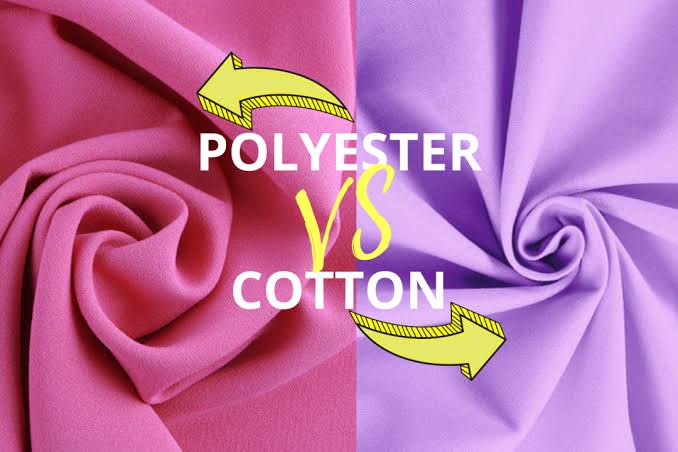
Common Materials for Workout Clothing
Discussed below is a brief description of cotton and polyester fabric, including their composition, pros, and cons. Sometimes, the type of material (cotton or polyester) used is included in the workout clothing label.
Cotton Fabric
Cotton fabric is a natural fiber that can be dated back thousands of years. This fabric is very soft, comfortable, breathable, and capable of withstanding moisture, however, this depends on the processing technique used. Additionally, it is easy to maintain. Just put the fabric in the washer and leave it for a few minutes, it will be clean.
Despite its many pros, it is plagued with some cons, such as shrinking and fading after washing. Also, cotton fabric is not form-fitting and is very prone to wrinkles.

Polyester Fabric
Polyester fabric on the other hand is a synthetic fiber that was created in the 1940s from a chemical reaction of petroleum, air, and water composition. This is the world’s most common synthetic textile and it is popularly known for its breathability, durability, color-fast, and crease resistance.
Chemically, it’s a polymer made up of compounds that belong to the ester functional group, and its processing contributes to environmental pollution. Another disadvantage of polyester fabric is its less suitable to wear during intense workouts, as it is very strong and causes sweat. It doesn’t absorb moisture.
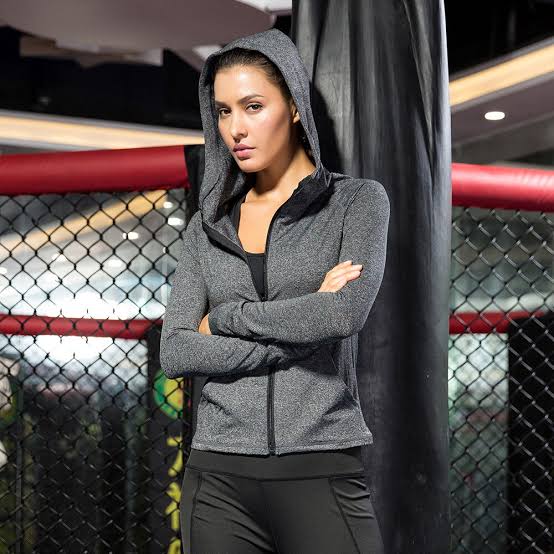
Cotton vs Polyester for Activewear – Breathability
Below is a discussion that explains the question: is cotton better than polyester or is polyester better? Let’s explore the breathability of both fabrics to know the better option.
The Breathability of Cotton Activewear
One of the popularly acclaimed characteristics of cotton activewear is its breathability, hence why it is one of the recommended most breathable fabrics for sportswear. The natural fibers of cotton give space for air to move through the fabric easily, improving ventilation and keeping the body cool during physical exercises. The open structure of cotton materials and the free flow of air creates a cooling effect on the skin, which regulates the body temperature during workouts.
This prevents overheating and sweating, which makes the material suitable for low to moderate intensive workouts, as well as casual sports that require the wearer to be comfortable and cool yet professional. Additionally, cotton activewear is the preferred fabric when seeking an option that won’t cause displeasure or irritation.
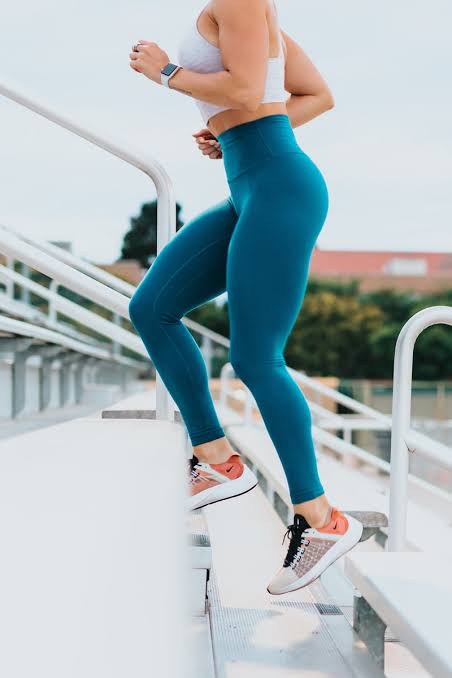
The Breathability of Polyester Activewear
On the other hand, polyester activewear is less breathable. The fabric is man-made and it is designed to have a denser structure, restraining the space for air to flow through. This results in lesser ventilation and restriction from enjoying the breeze in the environment. Hence, wearing polyester activewear during demanding workout sessions or in hot and humid conditions could make the wearer feel warmer, resulting in increased perspiration.
However, thanks to technological advancement, there are now moisture-wicking polyester fabrics that are designed to draw sweat off the body toward the outer part of the material where it evaporates. These types of polyester help in enhancing breathability and comfort during tough exercises or when the weather condition isn’t very comfortable.

Cotton vs Polyester for Activewear – Moisture Management
Moisture management capability is another factor that answers the question: is polyester better than cotton is it the other way around? Let’s explore both fabrics’ capability to resist moisture like water and sweat and how this affects the workout process.
Moisture Management of Cotton Activewear
Naturally, among the characteristics of cotton fabric is moisture-wicking. The fibers have the ability to absorb moisture, including sweat from the body, as well as moisture, which is why cotton activewear dries faster. When perspiration starts during a workout, cotton activewear is engineered to draw the moisture of the skin to the fabric, where it dries. This transcends to its ability to dry fast after washing.
In addition, cotton has good breathability, giving room for air to circulate through the fabric. The free circulation of air enhances the evaporation process, which makes the body cool quicker than expected. The combination of its fast moisture absorption and good breathability offers a pleasant and cool sensation that makes the wearer feel comfortable throughout the workout process. In fact, this can serve as momentum to do more reps.

Moisture Management of Polyester Activewear
Polyester, on the other hand, is less effective in absorbing moisture. As highlighted earlier, it is a man-made fiber designed to have a denser molecular structure, which restricts fast moisture absorption. Hence, polyester activewear tends to be unable to wick away sweat off the body, which causes irritation, discomfort, and fuels tiredness.
Following polyester’s inability to absorb moisture very well, it should not be worn during intense workouts or when the weather condition is unfriendly.
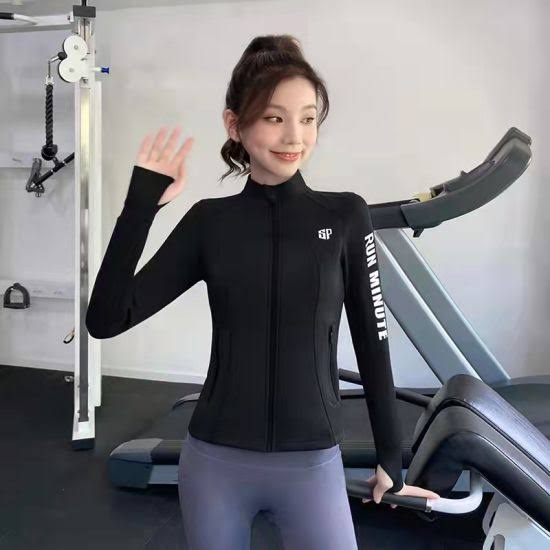
Cotton vs Polyester for Sportswear – Softness
Is polyester like cotton in terms of softness? Let’s look at how soft both materials are, which one is softer, and the benefits that come with it.
The Softness of Cotton Sportswear
One of the major highlights of cotton fabric is its softness and the comfort that comes with its texture on the skin. The natural fibers of cotton are soft, light, and smooth with a gentle texture that offers a comfortable wearing experience. With this, during workouts or physical experiences, there won’t be a feeling of additional weight on the skin. This is very necessary, especially during intense workouts that involve prolonged movement and contact with the sportswear.
Contributing to this is the good breathability of cotton fabric, which allows air to circulate through the activewear effortlessly. This combines with the softness of the fabric, which results in premium comfortability, as the body temperature is regulated and moisture is prevented from staying on the skin.
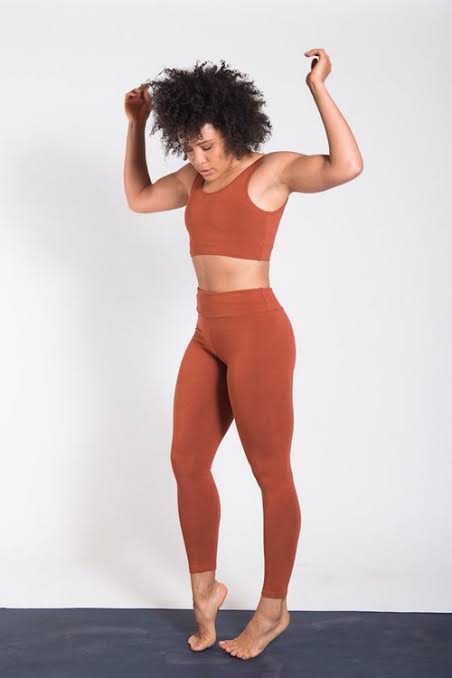
The Softness of Polyester Sportswear
Polyester, on the other hand, is less soft and its texture isn’t very comfortable when compared to cotton. Since polyester is a synthetic fabric manufactured to have a denser molecular structure, it is stiff and has a less pliable feel. And this is not very good not just for workout, but for people who have sensitive skin or only wear clothing that offer a soft feel.
This becomes worse during intense workouts. The body is likely to be soaked in sweat and the polyester sportswear complicates things as it is not soft nor can it wick off the sweat. This results in irritation and discomfort, which can easily influence fatigue, making the wearer unable to work out as much as he/she would if it was cotton sportswear. Hence, polyester is not the best option for people who want a comfortable and cozy feel during physical activities.
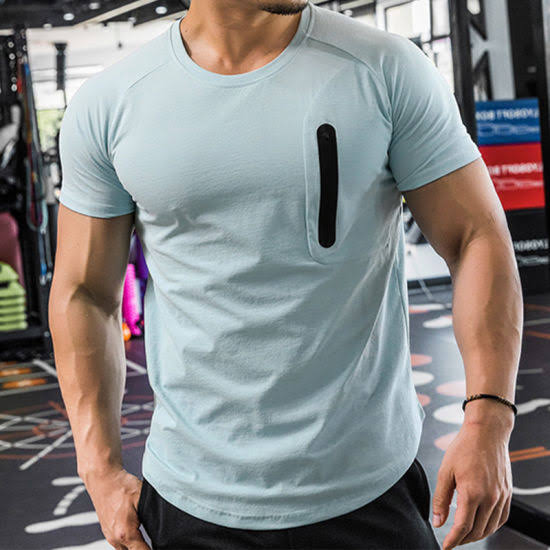
Cotton vs Polyester for Sportswear – Durability
One of the important elements in the guide to choosing sportswear fabrics is durability. To choose either polyester or cotton, it’s crucial to examine the more durable option and its effects on workouts.
The Durability of Cotton Sportswear
Cotton sportswear is extremely soft, which makes it less durable when compared to polyester. Also, cotton activewear shrinks when exposed to high temperatures during washing, which can result in changes in size and fit. Additionally, cotton sportswear tends to fade easily, especially after repeated washing and exposure to sunlight. This is more obvious for workout clothes that are dyed, as the coloring will wear off.
Despite all these, it’s essential to note that the durability of cotton sportswear varies depending on the fabric’s quality and care. Using high-grade cotton fabric and advanced care mechanisms, like washing in cold water and air drying, can reduce shrinkage and fade to a reasonable extent.
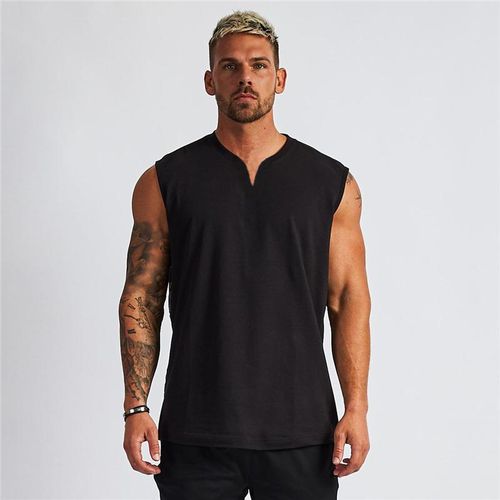
The Durability of Polyester Sportswear
Polyester sportswear, on the other hand, is much preferred for its durability and capability to withstand shrinkage and fading. This is because the fabric is a synthetic material that has been designed to retain its properties despite exposure to heat, moisture, or other factors that can cause any form of deterioration. This is why polyester sportswear is less likely to change in size, fit, or color.
The polyester fabric gives more guarantee of your sportswear maintains its vibrancy and appearance regardless of many washing and exposure to sunlight. This resilience in terms of shrinkage, fading, and overall durability makes polyester sportswear the better choice when seeking long-lasting workout clothing.
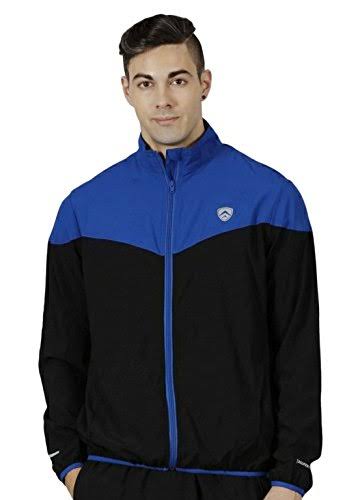
Cotton vs Polyester for Sports Clothing – Resistance to Wrinkles
Another factor that will help you choose between polyester vs cotton is their resistance to wrinkles. Let’s explore how this affects sportswear selection.
Resistance to Wrinkles of Cotton Sports Clothing
While cotton sports clothing is known for many good things, including excellent breathability, moisture management, softness, comfort, etc., it is prone to wrinkling. Naturally, cotton fibers tend to crinkle and crease, leading to frequent wrinkles. What this means is that more attention is needed to maintain a clean look because cotton fabrics are quick to become rough.
To make sure that the cotton activewear is without wrinkles, proper cleaning must be done by washing, ironing, and storing them appropriately. The application of moisture and heat relaxes the fiber and eliminates any form of wrinkle. But the beauty of the cotton fiber is that as much as it gets wrinkled quickly, it gets smooth easily with little maintenance.
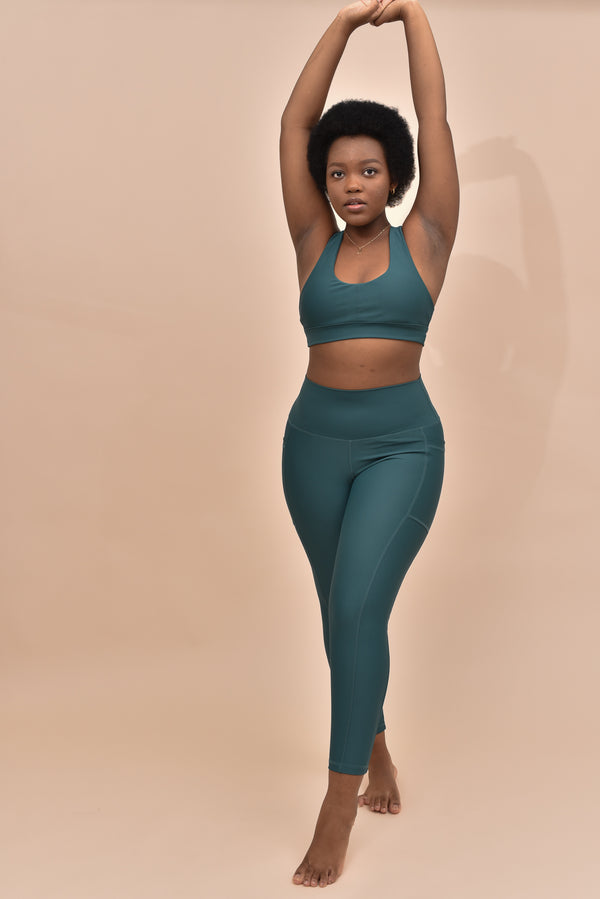
Resistance to Wrinkles of Polyester Sports Clothing
In contrast, polyester fabric is preferred for its great resistance to wrinkles. The inbuilt resilience of polyester sports clothing allows it to maintain its smooth look even after going through extended periods of wear or indecent packaging. The fabric’s ability to maintain a wrinkle-free look makes it suitable to wear without ironing, making it a good option for people with busy lifestyles. Just take it out of your closet and put it on.
Hence, polyester sportswear is the perfect option for people who want low-maintenance workout clothing. This attribute extends to the durability of polyester sports clothing as it retains its shape and smoothness despite repeated wear without too much care.

Cotton vs Polyester for Sports Clothing – Environmental Impact
Discussed below is another notable difference between cotton and polyester fabric. Let’s explore how sports clothing made from both materials affect the environment.
Environmental Impact of Cotton Sports Clothing
Being a natural fiber, cotton is biodegradable and renewable, hence the sports clothing made from the material is environmentally friendly. Unlike polyester, manufacturing doesn’t involve the use of pesticides, fertilizers, or other forms of modifiers synthetic textiles use.
Once cotton materials reach the end of the life cycle, they easily decompose without causing pollution or contributing to waste in the environment. Also, cotton fabric is grown using natural farming practices. This reduces the use of harmful chemicals and pesticides, enhancing soil health.
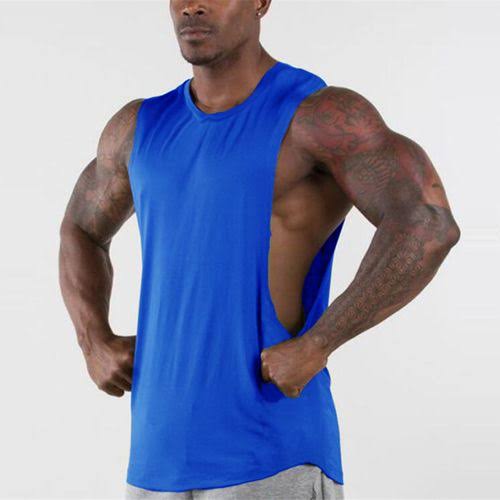
Environmental Impact of Polyester Sports Clothing
Polyester is a synthetic fabric that’s derived from petroleum-based products and it takes hundreds of years to break down, contributing to waste accumulation in landfills. Its processing has a significant environmental impact, including the emission of greenhouse gases and the destruction of finite resources in society.
The polyester material is less eco-friendly at every stage of its production, and it inevitably stores in the world’s ecosystems with no viable means of removal. Additionally, the washing of polyester sports clothing releases microplastics into water bodies, which pose much danger to aquatic ecosystems and can interfere with the food chain, which in turn puts the health of wildlife and humans at risk.
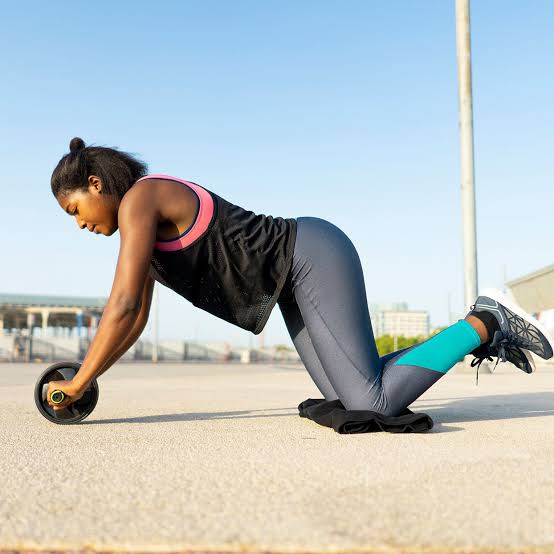
Cotton vs Polyester for Workout Clothing – Suitable Applications
Discussed below is another notable difference between polyester and cotton fabric. Let’s explore the different suitable applications of sportswear made of cotton textiles, as well as those made of polyester.
Suitable Applications of Cotton Workout Clothing
One of the notable shortcomings of cotton workout clothing is its inability to absorb or resist water, which makes them unsuitable for outdoor activities and high-intensity workouts. Rather they are used for mild intensive activities, casual sports, warm-up and cool-down sessions, and athleisure.
The soft and breathable nature of cotton workout clothing makes it perfect for activities like yoga, stretching, walks, and light gym exercises. Generally, this fabric option is great for everyday active lifestyles and leisure workouts where professionalism and comfort are needed.

Suitable Applications of Polyester Workout Clothing
Polyester, the number one man-made clothing material across the world, is designed to absorb water easily, which makes its workout clothing most suitable for high-intensity activities. Known for its performance-oriented properties, you can choose this option to serve as a universal and versatile fabric that appeals to different weather conditions. It is also long-lasting and extremely durable.
Thanks to its lightweight, it can be used for outdoor adventures, gym workouts, as well as intense exercises that involve sweating. Polyester workout clothing is capable of keeping the wearer dry and comfortable despite intense workouts like running, cycling, or high-intensity interval training (HIIT).
Other types of activities you can use polyester clothing for are hiking, climbing gear, and water sports due to their ability to resist water absorption and dry quickly.

Cotton vs Polyester for Workout Clothing – Cost
The polyester fabric vs cotton fabric debate can further be discussed by evaluating the cost of production. Let’s explore what it takes to manufacture workout clothing with both materials.
Cost of Cotton Workout Clothing
Cotton workout clothing is more expensive than when using polyester fabric because of the high cost involved in the manufacturing process. According to IndexMundi, raw cotton costs about $0.75 per pound, although it is subject to change. Cotton is a natural fiber that needs extensive cultivation, harvesting, and processing before it is fit for use to make sportswear. Also, it is a water-intensive crop, resulting in the use of a large quantity of water for irrigation.
Additionally, the cost of organic cotton fabric is high because synthetic chemicals are not used to fasten the growth process, hence more labor is employed.

Cost of Polyester Workout Clothing
Polyester workout clothing, on the other hand, is less expensive because it is a man-made fabric that’s manufactured in the most cost-effective way. Polyester fabric is made from the composition of petroleum-based products, air, and water, which are readily available and relatively cheap.
Instead of employing much labor for the polyester processing, fertilizers, pesticides, and all forms of modifiers are used to control the growth and protect the fabric from pests or other damaging insects. This contributes to the factors that reduce the amount of money spent on producing polyester fabric. And when the cost of the material is cheap, the overall cost of the workout clothing will be more affordable.
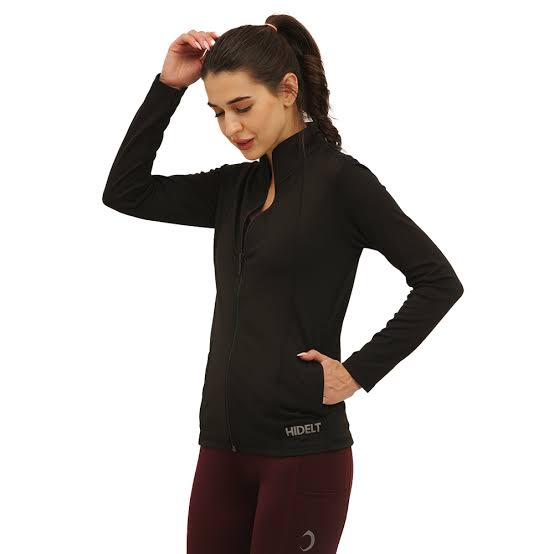
A Recommended OEM Manufacturer of Workout Clothes – UGA
UGA is a professional and reliable manufacturer and supplier of workout clothes that have been operating largely in the industry since 2014. We have a wealth of knowledge and first-hand experience in making sportswear with various types of fabrics, including polyester and cotton.
Amongst our expertise and benefits are:
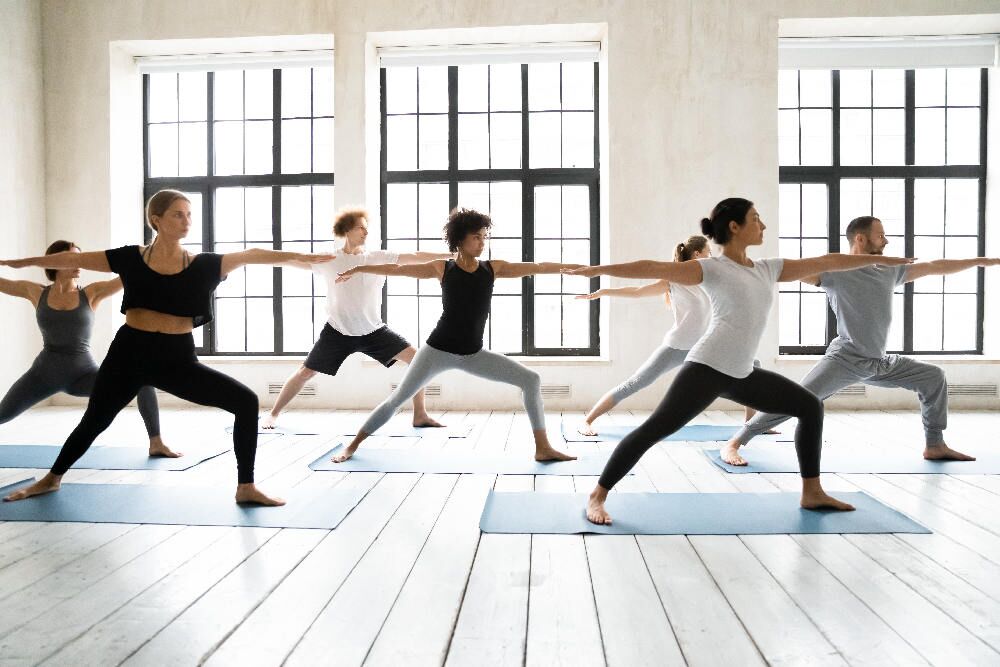
High-Grade Materials for Sportswear
With the objective to standardize the sportswear production industry and introduce quality activewear, (learn: Sportswear VS Activewear: Understanding the Difference) we make use of high-quality cotton and polyester materials, which are sourced from the best suppliers in the world. Upon receiving them, they are thoroughly inspected to ensure they are of high quality and without defects.
During production and packaging, we also run some strict quality control procedures to make sure the finishing products are produced according to your specifications. Every detail is keenly assessed.
Customized Design and Manufacturing
UGA is a one-stop service provider. We have qualified and experienced designers to bring your design to life. We have a streamlined operation system, which involves communicating with you to discuss your requirements, designing them, making samples, sending them to you for confirmation and possible modifications, making mass production after the modifications are settled, then shipping them to you before the lead time expires.
Our robust customization of cotton or polyester workout clothing extends to various types of activewear, including tops, jackets, leggings, sports bras, hoodies, tracksuits, joggers, tennis skirts, etc.
Personalized OEM
Our wide range of capabilities extends to making OEM and private label sportswear for your business brand. We offer all-round personalization services, ranging from logo, branding, and package printing customization.
Your specifications and requirements are followed to the latter, making sure that your business stands out among competitors. You can explore our private label activewear collection, including gym clothing, workout clothing, sports clothing, running clothing, and yoga clothing.
Conclusion
Choosing between cotton vs polyester for your sportswear can be a difficult decision to make because they both have excellent properties that make them stand out from other types of fabrics.
However, there are some notable differences between them that can primarily influence your decision making. For example, cotton has better breathability, moisture absorption, softness, and eco-friendly properties. While polyester is more durable, resistant to wrinkles, suitable for intense workouts, and less expensive.
Do you need more professional guidance on which option to choose between polyester vs cotton, or require our expertise to meet your sportswear and workout clothing market needs? Contact us today and enjoy the most satisfying services.

